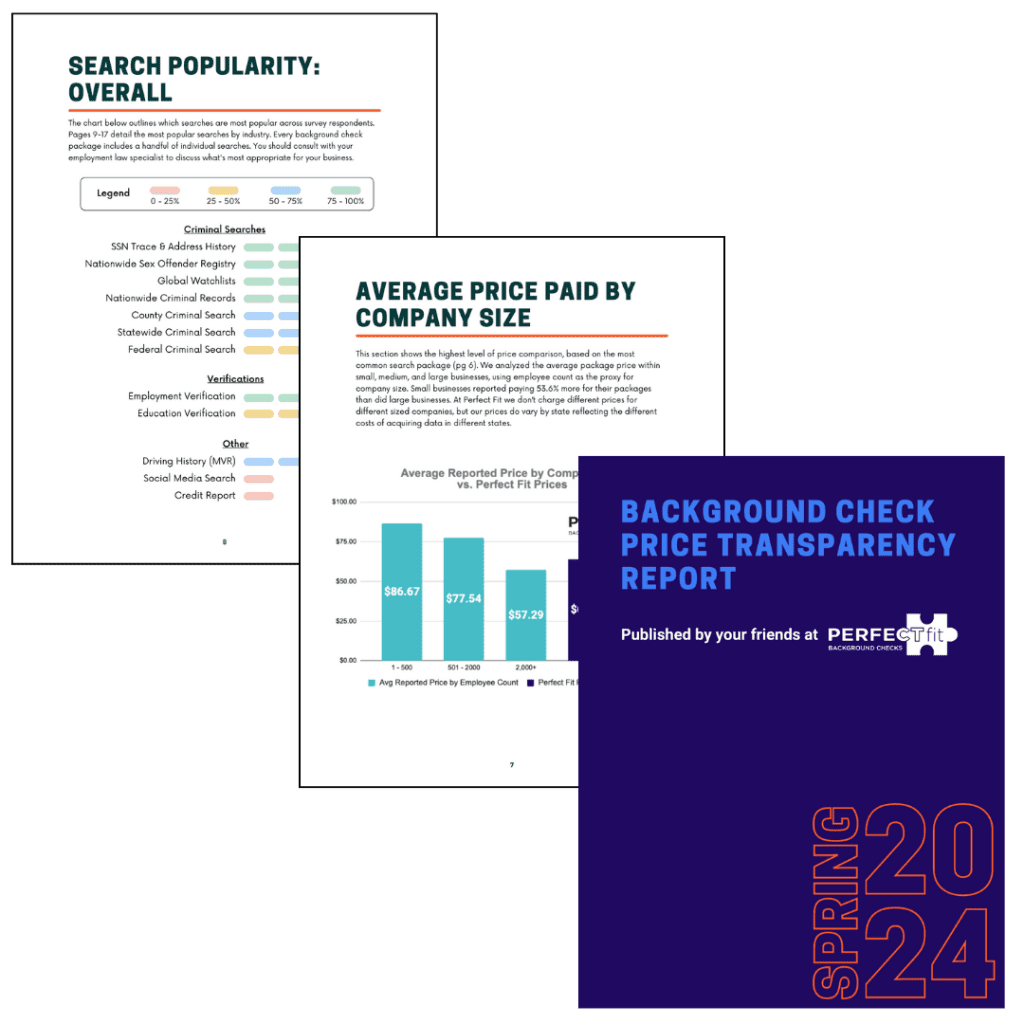Background check accuracy: our safeguards against inaccurate data
There’s a lot at stake during a hiring or promotion decision, and you should be able to rely on the accuracy of candidate background checks. Accurate reporting ensures your candidates aren’t wrongfully denied an opportunity for which they would have otherwise qualified. To better protect you and your candidates, we have implemented legal protections and procedural safeguards.
Our Internal Safeguards
Perfect Fit Background Checks is classified as a Credit Reporting Agency under the Fair Credit Reporting Act. This means we have an obligation to establish and execute policies to prevent inaccurate results from being included in a final background check report. This policy or the FCRA “reasonable procedures” requirement was established in the 1990 court case of Philbin vs TransUnion.
So what does that actually look like? Our Quality Assurance team manually reviews each report before it is released. They look for suspicious data that could call for deeper investigation.
The Philbin vs TransUnion case gives a good example of what our QA Team looks out for: report results that may belong to someone else with a name similar to the candidate. In Philbin vs TransUnion, a credit report for a son included records belonging to his father because they had identical names. This kind of error in reporting can occur when the only difference in a family name is a Senior or Junior designation. Our team’s due diligence works to prevent these reporting errors.

A Candidate’s Rights
Transparency in Reporting
One of the consumer protections included in the Fair Credit Reporting Act is the legal right for the subject of a background check to receive a copy of the results when there may be an adverse action taken against them.
In other words, a candidate has the right to a copy of their background check records if they may not be hired or promoted based on the data in the report. When an employer decides that they may deny employment or promotion due to the results of the background check, they must notify the candidate and provide them with a copy of the results.
Disputing Inaccuracies
Transparent accessibility to reports and our QA Team’s efforts provide a good first-line defense, but no one is more familiar with a candidate’s history than the candidate themselves. Per the FCRA, an employer must give their candidate a reasonable amount of time (generally considered to be a minimum of five business days) to dispute the results of their background check. If a candidate disputes the results, your background check provider must conduct a reasonable investigation to establish whether the disputed information is accurate or not.
Conclusion
As long as humans are involved, it’s inevitable that there will be data errors. Using the FCRA as a guide, we have policies and a team in place to make our best effort to identify and manage those situations whenever they arrive. If you have additional questions, please reach out to us here.
DISCLAIMER
The material and information contained on this website is for general information purposes only. While every measure has been taken to ensure the accuracy of the material, Perfect Fit Background Checks does not guarantee the accuracy or completeness of the material found on this site. You should not rely upon the material or information on the website as a basis for making any business, legal or any other decisions.
Perfect Fit Background Checks will not be liable for any false, inaccurate, inappropriate or incomplete information presented on this website.
To the extent not prohibited by law, in no circumstances shall Perfect Fit Background Checks be liable to you or any other third parties for any loss or damage (including, without limitation, damage for loss of business or loss of profits) arising directly or indirectly from your use or inability to use, this site or any of the material contained in it.




